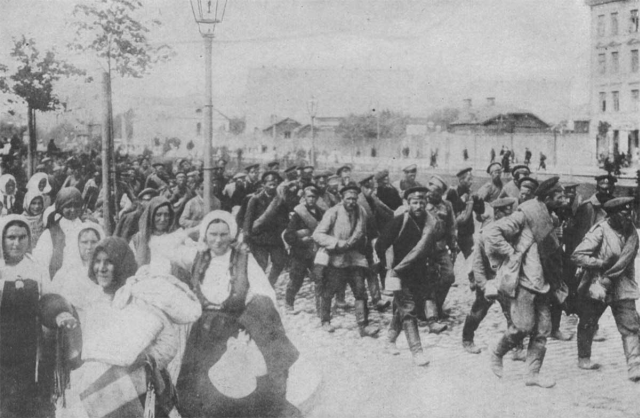The National Liberal Party and Romanian Neutrality Early in WWI
The breakout of the First World War left Romania in an awkward stance with regard to taking sides.

Steliu Lambru, 16.02.2015, 13:17
King Carol I himself sided the pro-German faction. The pro-Allied faction was made up mainly of politicians who wanted to promote the rights of the Romanians in Transylvania, which was part of the Austro-Hungarian Empire at the time. Neutrality was the temporary arrangement considered best for the early part of the war. Another reason why neutrality was tempting was the state of the Romanian armed forces. Even though efforts had been made to bring Romania in line with Western countries, the archaic economy and the backward state of the armed forces were important arguments for staying out of the conflict in the beginning. Here with details is historian Alin Ciupala:
“Romania’s situation was very complicated, because it already had an alliance treaty with Germany and its allies. It was a defensive treaty, but one which was unknown to the public and most of the Romanian political class. German imperial chancellor Otto von Bismarck, when signing the treaty, had a condition, that this treaty remained secret, and therefore it was known only to the king and a handful of politicians. This 1883 alliance brought Romania security guarantees it sorely needed as a young independent state. In 1914, the treaty was a problem, because it limited, at least in terms of international law, the freedom of movement of the Romanian political.”
Romania was therefore in a conundrum in 1914. It wanted to defend and promote the national and civil rights of the Romanians in Transylvania, Banat and Bukovina, three provinces that were an integral part of the Austro-Hungarian Empire. The arguments for rejecting the call of the Central Powers to observe the alliance and join them in the war and staying neutral, were summarised by pro-Ally prime minister Ionel Bratianu:
“A state like ours, which entered this alliance as a sovereign state, on equal footing, cannot be treated in this manner. (…) At the same time, Romania could never acquiesce to take up arms in a war whose point is precisely the obliteration of a small nation. (…) The public sentiment is almost unanimously against war. (…) The fate of the Romanians beyond the mountains and the Romanian national ideal are matters that no Romanian government can afford to overlook.”
VF Historian Alin Ciupala told us about the Crown Council in which neutrality was proclaimed:
“Politicians and the Prime Minister, Ionel Bratianu, were aware of the fact that the Romanian army was not prepared, it did not have the technical means to cope with the exigencies of a modern war. The military capacity of the Romanian army could be seen in 1913, when it was sent south of the Danube into Bulgaria, in the Second Balkan War. All this caused tensions in the discussions on Romania’s stance in the war. King Carol I called the Crown Council at the royal mansion in Peles, bringing together the leaders of the National Liberal Party and their government ministers, as well as other important politicians, such as his heir, Prince Ferdinand. Carol I called explicitly for Romania’s joining Germany and its allies in the war, with the 1883 defensive treaty as his main argument. The king was to face for the first time in his rule a deep disappointment, because most of the politicians there were of the opinion that Romania could under no circumstances join Germany in the war, because that would have meant a cancellation of the national project, precluding the union with Transylvania. In addition, because of the country’s and the army’s lack of preparation for the war effort, most of the participants in the Crown Council proposed neutrality. The role of the National Liberal Party and its leaders was as important as that of other politicians of that era. Ionel Bratianu himself was aware of the fact that the responsibility for the decision to join the war was a responsibility that fell solely on the Romanian political class. If we are to think strictly of the role played by the Liberals — especially the Liberal government ministers — we can say that Ionel Bratianu’s government had started a pretty well sustained activity to prepare Romania to join the war. Ionel Bratianu wanted, in fact, to delay that moment as much as possible.”
In the two years after Carol I died, the two sides in the war spent considerable effort on attracting Romania to their side. The new king, Ferdinand I, and the prime minister, Ionel Bratianu, however, had no intention of breaking neutrality until they had a level of certainty that national objectives were to be met as a result. Finally securing the guarantee of its national integrity, Romania joined the Allies in 1916. When they won the war, the long held dream of creating a Greater Romania finally came true, bringing Bessarabia, Transylvania, Banat and Bukovina into the fold of the Romanian Kingdom.






























